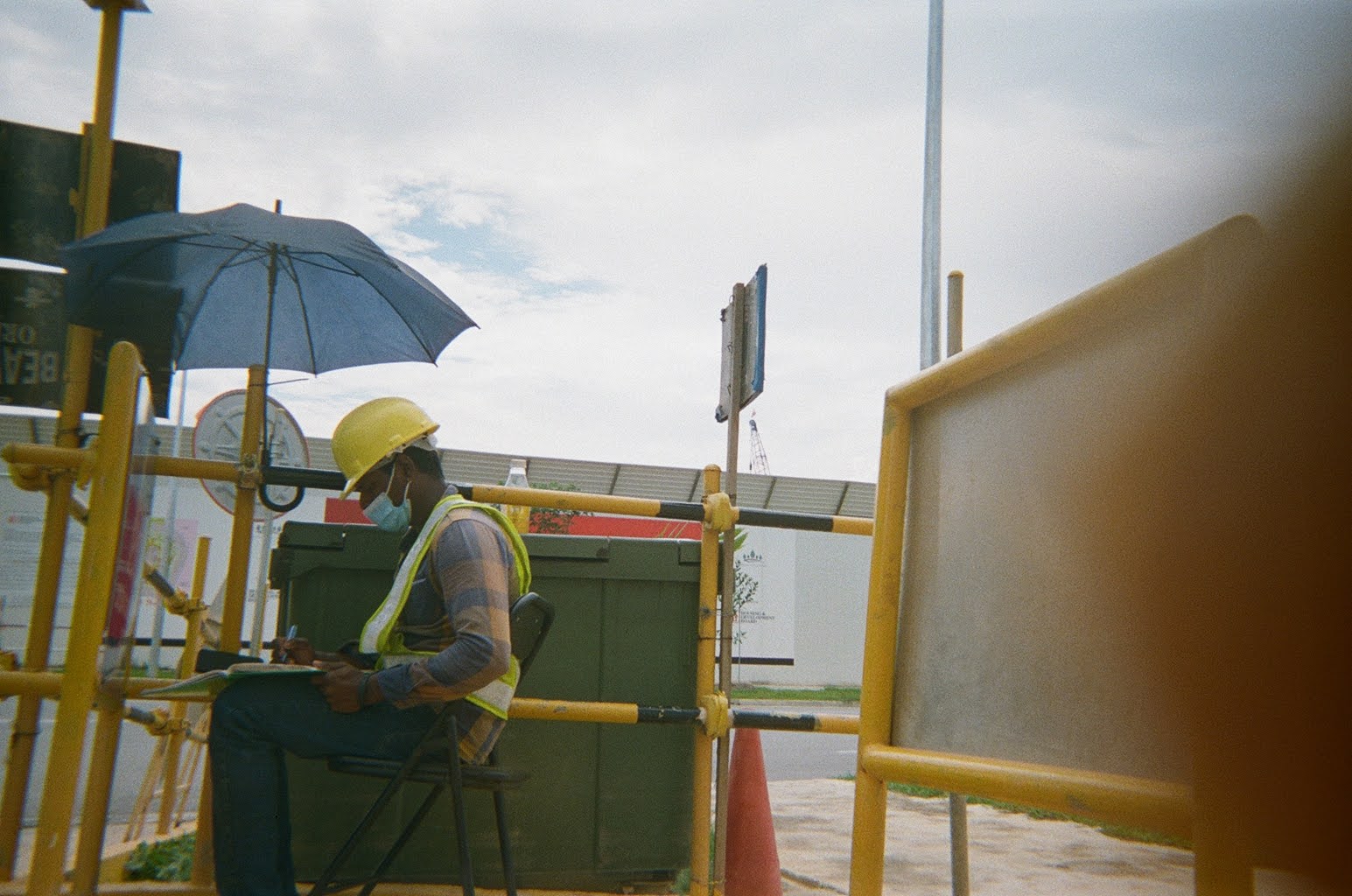Top Image: Zachary Tang / RICE File Photo
Singapore is literally shaped by the hands of migrant workers. How they go about their lives here, however, is shaped by ours.
The plight of isolated migrant workers in Singapore has been widely documented throughout the course of the pandemic. And it seems like that has continued with an unfortunately-worded advisory by the Singapore Bangladesh Society (SBS) and the Islamic Religious Council of Singapore (MUIS) directed at Bangladeshi Muslim transient workers.
ADVERTISEMENT
The message (now taken down) appeared to insinuate that migrant workers shouldn’t be performing their Eid prayers in mosques—the very buildings they helped build.
A more negative outlook would perceive that even during the festivities of Eid Al-Fitr—a joyous time of forgiveness, fellowship and food—migrant workers are expected to be out of sight.
A Case of Poor Messaging Towards Migrant Workers
The notice cited overcrowding, road blockages and the safety of the congregation as the reasons for this request.
Incensed by its undertones, many found the advisory unreasonable and demanded clarification from SBS and MUIS about their intentions.
It prompted MUIS to release an official statement clarifying the original message. SBS has yet to address the matter and has removed the circular from its platforms. In replies to comments on social media, MUIS also apologised for the poor wording in the advisory.
The council clarified that it was never their intention to segregate migrant workers or restrict them from praying at the mosques. The circular simply intended to encourage Bangladeshi Muslim transient workers to take advantage of lower-demand locations and sessions, such as those in their dormitories.
ADVERTISEMENT
It’s important to note that the message to avoid crowding on the morning of Eid wasn’t only directed at migrant workers. Across their social media platforms, MUIS has been urging congregants to do the same thing—opt for less crowded venues and less popular timings.
It was unfortunate that the message got lost in translation. Some commenters point out that poor translation could also be at play here when SBS relayed the memo from MUIS.
But the discrepancy between the initial advisory and the subsequent clarification is too glaring to be ignored. How could it have been misconstrued to this extent? Compared to the carefully produced PR video directed to the general public, the plain, brief advisory to Bangladeshi workers missed the mark in avoiding misunderstanding.
Nevertheless, the damage has been done.
Ill-timed
38-year-old Adore*, a migrant worker working in Singapore since 2009, remarks that the message seems contradictory, considering that migrant workers are volunteering at Ramadan iftars and Friday prayers—the same mosques they’ve been advised to avoid.
“I don’t really know why MUIS has sent such a notice which is completely contradictory, especially when almost all of Singapore is fully vaccinated against COVID,” he intones.
ADVERTISEMENT
Even before the pandemic, Adore observed a similar pattern. He recounts a similar incident occurring back in 2013. According to him, volunteers advised Adore not to enter when he visited a mosque in Bukit Merah for Eid prayers.
He eventually found out that Muslims from the Malay community were allowed in for the first prayers; migrant workers had to wait outside on the road for the second and third waves of Eid prayers.
While the segregation between migrant workers and local Muslims might not be intended, it’s what the migrant workers felt that mattered.
And in Singapore where migrant labourers have been subjected to a different set of regulations separate from the rest of society, sending out such an advisory seemed ill-timed. After all, the message seemed to be targeted at Bangladeshi workers.
Ultimately, it reinforces the idea that migrant workers need to be segregated. At this point, it only displays the amount of care that went into delivering the message, especially when it concerns a vulnerable segment of society.
On Fairness
But Adore still manages to exercise some understanding towards the situation. “[Mosque volunteers] also apologised and said it is too much crowd for some elderly persons who are vulnerable to being sick.”
“But directly asking [us] to pray at the dormitories doesn’t seem fair.”
Praying at the mosque is something Muslim migrant workers look forward to, according to 28-year-old Jahid, who has worked in Singapore for the past seven years.
Hectic schedules and long hours of labour mean that migrant workers aren’t able to pray at the mosque at required prayer times. An advisory like the one that was released, according to Jahid, denies Muslim migrant workers a glimmer of home.
“We come here to work to support our family. When we are back home in our country, we pray at the mosques. We miss that time.”
Perhaps, any future advisory should consider other ways for crowd control. The migrant worker community should not be the sacrificial lamb for a solution. Even if it wasn’t intended that way, the phrasing made it out as such.
The intention was not to discriminate against Singapore’s migrant workers in the first place, MUIS clarified. But more care could be taken in a message which seems to single out a segment of Singapore society. These migrant workers bore the brunt of that messaging.
Fairness, in this case, is ultimately judged by its outcomes—migrant workers face yet another directive to wait for their turn and give way to Singaporeans.






